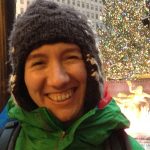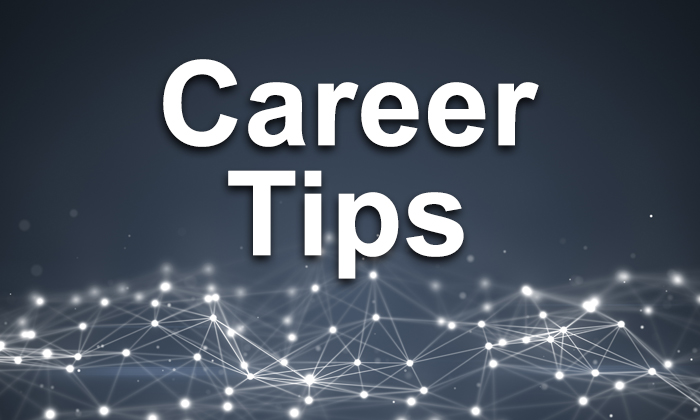Guest post by Giovanna Collu
Are you interested in applying for the AAAS Science & Technology Policy Fellowships (S&TPF)? Applications are now open and to help you prepare we have compiled some tips we learned from current and former fellows Cara Weismann, Maryam Zaringhalam, and Avital Percher. To learn more about the fellowship experience, read our previous interview with a fellow.
Written application (deadline November 1)
The initial application materials consist of a CV (5 pages maximum), a brief description of your extracurricular activities (500 words), and a candidate statement (1000 words) about your career goals and qualifications for the fellowship. You will also need three references. Applications are evaluated using these criteria.
The candidate statement is a unique opportunity to highlight the reasons why you want to apply and the qualifications that make you particularly well-suited for success. This is the place to include your policy areas of interest and how you might be able to apply your expertise—whether you gained it at the bench or outside the lab—to make meaningful contributions to the scientific enterprise. It’s important to also include details about your career goals and how the fellowship will help you achieve them. Here are a few tips to guide your writing:
- The application statement requires a unique style of writing; it is very different to writing as a scientist. You must be tactful, the author of policies you are critiquing might be one of the reviewers!
- Get feedback from a former fellow; you can find a list of former fellows here.
- Be deliberate about the kinds of evidence you put forward to demonstrate your policy interest and expertise.
- Be consistent with your messaging and have a common narrative across all your application materials.
- Highlight any public communication experience you may have, including items you’ve written for general audiences, mentorship and outreach projects, and speaking to the public.
- Explain how your journey is unique and include details that will make you stand out —consider using the narrative arc of where you are now, what got you there, and where you see yourself going.
- Be clear about you would get out of the experience and what you can contribute to the community. Don’t explain why the fellowship is a great opportunity (they know this already!), rather explain what makes you the right match.
- To make sure references are consistent with your message, share your application materials with your referees and give them examples of times you accomplished specific goals or worked in specific areas.
- Above all else, make it easy for application reviewers to see your potential!
Semi-final interviews online (February–March)
If you successfully pass the first round, you will be invited to write a one-page briefing on one of the designated science topics. You are asked to pick a topic unrelated to your field of expertise. Previous examples have included lethal autonomous weapons, Zika virus, and the Flint water crisis. You will be writing for a specific agency or person, for example, the Director of the National Institutes of Health testifying to Congress. Here are some tips to consider:
- Find out what has been in the news on your topic and whether current affairs impact the content of your briefing.
- Look for historical precedents on similar issues and try to apply lessons from them.
- Give alternatives; outline which other agencies could complement the agency for which you are writing and what is happening in the field.
- Know your audience. Understand that you must keep the current administration’s priorities in mind as you write recommendations.
- Overall, consider what information you would want in that situation to feel prepared.
You can also find examples of how to write a policy briefing here and here, as well as a list of things to bear in mind as a scientist writing to policy makers
The deadline for your briefing memo will be 7–10 days before the online interview. You will present the briefing to an evaluation panel as part of the 30-minute interview. The panel is comprised of 6–8 people, including policy experts, as well as people from the fellowship program. You will have five minutes to deliver your briefing to the panel, followed by five minutes of questions. During the presentation, you are expected to be able to deliver the briefing without reading directly from notes. You cannot use any visual aids, such as PowerPoint, and there will be a countdown timer displayed on the screen, so you will not be able to see the audience as you present. There are then 20 minutes of questions and discussion of your application materials. Some tips include:
- If the situation has changed in the intervening time include updates in your briefing.
- Practice delivering your briefing beforehand.
- Role play ‘typical’ interview questions ahead of time, such as who has influenced you and why or describing a challenge you’ve faced and how you overcame it.
- Refer to your application materials to make sure your practiced answers are consistent with what you have already provided.
- Reinforce that you will bring something unique to the process and get something unique in return that will then shape your future.
Finalist Interviews – on site in DC (April)
For executive branch fellowships, in-person interviews take place over one week in April in Washington, DC. You will learn how to navigate DC and the surrounding sites such as the National Institutes of Health in Bethesda, MD, and the National Science Foundation in Arlington, VA. You will have anywhere from 5–20 interviews at different host agencies during the week, and you will receive the schedule the previous week. The matching process depends on which agencies are interested in you, and which agencies you are interested in. Reviewers from the agencies have to look through hundreds of applications, so having a focused and consistent message in your initial application materials will make it easier for everyone at this stage. You may also be asked to send an additional writing sample to certain agencies about why you want to apply there and why you would be a good fit. Don’t be concerned if you are given only a small number of interviews on day one—you will also have the opportunity to schedule your own. Some other things to consider:
- Using key words in your written application becomes helpful at this stage. For instance, if you are interested in the National Human Genome Research Institute, ‘genetics’ and ‘genomics’ should feature in your written material. If you want to explore areas such as science diplomacy, make sure you include those key words and that you are open to international travel.
- Figure out what is important to you and mention your aspirations in each interview.
- Bring up policy issues that you are interested in working on.
- Find out what that particular office does specifically in the agency, so that you can ask informed questions.
- Make sure to check that the office knows a portion of your time is to be directed towards career development.
- Red flags are red flags—do not ignore issues that come up in interviews that make you question whether you would enjoy working in that particular office.
- Don’t overshoot with the number of interviews—if you arrange too many, you risk entering a meeting fatigued and distracted.
- Keep an open mind. If you so choose, the fellowship is an incredible opportunity to work in an office and on a portfolio that may seem totally outside the realm of your expertise.
The application site can be found here. Many of these tips also apply generally to other science policy fellowships; if you would like to look for other opportunities, check out our fellowship database. Good luck!
About the Author:
 Giovanna Collu is co-chair of the Early Career Scientist Policy Committee and a postdoctoral fellow at the Icahn School of Medicine at Mount Sinai. Giovanna’s goal is to increase advocacy opportunities for early career scientists with a focus on diversity and inclusion.
Giovanna Collu is co-chair of the Early Career Scientist Policy Committee and a postdoctoral fellow at the Icahn School of Medicine at Mount Sinai. Giovanna’s goal is to increase advocacy opportunities for early career scientists with a focus on diversity and inclusion.































